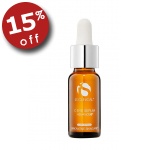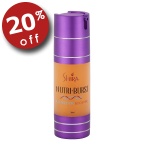Causes of Acne
Genetic Factors
Circumstantial evidence exists that acne is in part a genetic, or inherited, disease. In studies of identical twins twins that develop from one fertilized egg if one twin had acne, 97 percent of the other co-twins had acne as well. In the case of no identical twins or twins that develop from separate fertilized eggs the figure was 50 percent. In other family studies, 80 percent of acne sufferers had a brother or sister similarly afflicted, and in 60 percent one or both parents had experienced acne while growing up. There is an impression among dermatologists that the severest cases of acne occur in those youngsters both whose parents had acne or where one parent had very severe acne.
What does all this mean? It simply suggests that some unknown trait or factor can be passed on from parent to that, in the presence of other existing factors, promotes the development of acne.
Oily Skin
Most people think that acne and oily skin go together. Generally speaking, this is true. As a group, people with acne do have oilier skin than individuals who do not. Furthermore, if you do have acne, the severity of the condition seems roughly to parallel the amount of oil on the skin surface - that is, the oilier your skin the worse your acne.
Nevertheless, oily skin is not the cause of acne, since there a many sufferers who have normal or even dry skin and many, many people who have oily skin without a trace of acne.
Hormones
Hormones are substances that are produced in the body by the endocrine glands and are carried by the blood to other parts of the body where they act as chemical messengers and regulate various bodily functions. For example, the thyroid gland, located in the neck under the Adam’s apple, manufactures and secretes a hormone called thyroxin, which regulates the metabolism, affecting such diverse functions as hair growth and the rate of heartbeat.
Androgens (male hormones) are the only hormones that directly stimulate oil glands to enlarge and produce sebum. But both sexes produce androgens: males in the testes and adrenal glands, and females in the ovaries and adrenal glands. Of course, there is a difference in the normal amounts of androgens produced by each sex. Since acne is associated with enlarged oil glands and oily skin, it seems likely, then, that androgens are important factors in the development of the disease.
In contrast, estrogens (female hormones) to some extent block the effects of androgens on the oil glands, reducing the size of the glands and the amount of oil produced. Of these two “opposing” hormones, androgens seem to be dominant, since relatively small amounts of androgens can overwhelm the action of even large amounts of estrogens. It is important to understand that the majority of people who have acne, both male and female, do not have abnormal amounts of these hormones for their age and sex. It may be that the sebaceous glands of people who have acne react differently, perhaps excessively, to normal amounts of these hormones in the body.
Some abnormal conditions, such as cysts or tumors of the adrenal or sex glands, can cause larger than normal amounts of androgens to be produced. When this occurs in women, they may experience an increase in facial and body hair, a disturbance in their menstrual cycle, and acne. Obviously, acne occurring in this situation is merely a symptom of a more serious problem requiring the specialized attention of a gynecologist or endocrinologist.
The fact that (1) androgens stimulate the oil glands and encourage acne to happen and that (2) estrogens to some extent block this action has important consequences when it comes to the treatment of acne in women.
Another group of hormones directly affects the sebaceous glands and therefore can influence the course of acne. These are the corticosteroids, cortisonelike hormones made by the adrenal glands. Corticosteroids are prescribed widely for the treatment of conditions ranging from skin rashes to arthritis. Unfortunately, they sometimes activate the sebaceous glands, encouraging the development of acne, although it takes relatively large doses of corticosteroids, taken for a period of weeks, to cause so called steroid acne. Similarly, the strong corticosteroid creams, ointments, and lotions used by dermatologists to treat many different skin conditions also can cause acne or aggravate it, if it is already present.
Blockage of Follicles
The earliest event in the development of acne is the formation of the comedone, an oily plug that blocks the follicle opening on the skin surface (blackhead) or forms an obstruction in the follicle underneath the skin surface (whitehead). Under normal circumstances, the inside of the follicle is lined with cells that are similar to the cells of the surface layer of the skin, the epidermis. These cells grow, mature, die, flake off, and are carried to the surface of the skin by the flow of sebum. People with acne have a defect in the behavior of these follicle lining cells, which results in their not flaking off in a normal manner. These cells are not carried to the surface; instead they block the inside of the follicle, trapping oil and bacteria and forming a comedone.
Why the follicle lining cells behave in this way in some people and not in others is a mystery, but attempting to correct this defect with medication is a basic part of acne treatment.
Bacteria
Acne is not an “infection” in the true sense of the word, but bacteria inside of the acne-susceptible follicles do contribute to acne inflammation. These bacteria feed on sebum and break up this complex oily material into smaller molecules called fatty acids. The acne bacteria and the fatty acids attract white blood cells from the bloodstream and nearby skin into the follicle. The white blood cells release chemicals that make holes in the walls of the follicle and allow the contents of the follicle the sebum, dead cells, and bacteria to leak out into the adjacent skin, creating a local inflammation. When the area of inflammation is large enough, we see it as a papule, pustule, or acne cyst.
The bacteria that play a role in acne are not strangers to human skin. They are part of the group of living organisms that are considered normal residents of the skin and are found in everyone’s follicles. Nevertheless, reducing their number through treatment can effectively improve if not eliminate the acne.




 Today's random forum topics
Today's random forum topics
 What our customers are saying
What our customers are saying